|
|
Post by Bonobo on May 18, 2008 9:15:03 GMT 1
The modern history of Poland, about last 200 years, is usually perceived as the Times of Troubles during which our country was invaded, partitioned and occupied by foreign powers, always our neighbours. We should remember that Poles made a few invasions too, also on their neighbours. Those unlucky neighbours were the Czechs and the last invasion took place exactly 40 years ago, in 1968. The Warsaw Pact troops invaded Czechoslovakia to suppress the Prague Spring, a political movement of reform and liberalization, first within the communist party, then throughout the country. The reforms were unacceptable to Soviet leaders, who, in cooperation with other satellite countries, decided for an invasion. All the Eastern Bloc countries, including Poland but except Romania, invaded Czechoslovakia, on the night between 20th and 21st August 1968. The leaders of Czechoslovakia were forced, having over 200 000 foreign soldiers on Czechoslovak soil, to pledge allegiance to communism and the other socialistic brother countries. When the dawn fell on the 20th of August 1968 everything started. It was around midnight, when several thousands of Czechoslovak citizens awoke to the sound of heavy iron colossuses. At the first glance the only thing they saw was the big fire-bright star painted on the colossuses.
They just rolled past - what was happening? Nobody knew. People began to panic and they ran out on the streets only to be approached by heavy armoured vehicles and tanks. Nobody knew what was going on - not even the Soviet soldiers had the faintest idea.
The intervention in Czechoslovakia by the armies of five states of the Warsaw Pact (Bulgaria, East Germany, Poland, Hungary and the Soviet Union) began on August 20th, 1968. After 10 o’clock p.m. planes with Soviet commando troops began to land at the Prague airport. Already at night, government buildings started to be occupied. The leaders of the Prague Spring, including Alexander Dubczek, were arrested and then transported to Moscow. Upon learning about it, the Presidium of the Central Committee of the Czechoslovak Communist Party issued an act condemning the invasion and asking the citizens to remain undisturbed. President Svoboda appealed to the Czechoslovak Army not to resist the invaders.
The Czechoslovak borders were trespassed by 250 thousand Bulgarian, Polish, Soviet and Hungarian troops equipped in 4.200 tanks. The German army stopped at the border in fear of international repercussions. The Polish Army units which invaded used nearly 25 thousand troops, 647 tanks and 566 heavy carriers. To excuse the intervention a wide propaganda campaign was launched in Poland. Despite the resistance of civilians which appeared in some places (there were some street fights) in several hours the target positions in Prague were taken over. The liquidation of the achievements of the Prague Spring became a fact.
The intervention was a breach of the sovereignty of the state which aspired to reform the socio-political system according to the will of its people without participation of the Soviet Union. The Soviet leaders did not allow for the reform of the political system imposed on the countries of Central and Eastern Europe which could be seen not only in the case of the military action in Czechoslovakia but also an earlier suppression of the upraising in East Germany in 1953 or of the Hungarian revolution in 1956.What did the Czech think about Poles? Shame on you, Poles! this graffitti was put on the window of the Polish Cultural Institute in Czechoslovakia. Polish troops in Czechoslovakia. Poles "heroically defended" a few big towns against Czech patriots: Hradec Kralove, Pardubice, Olomunec, Trutnow. 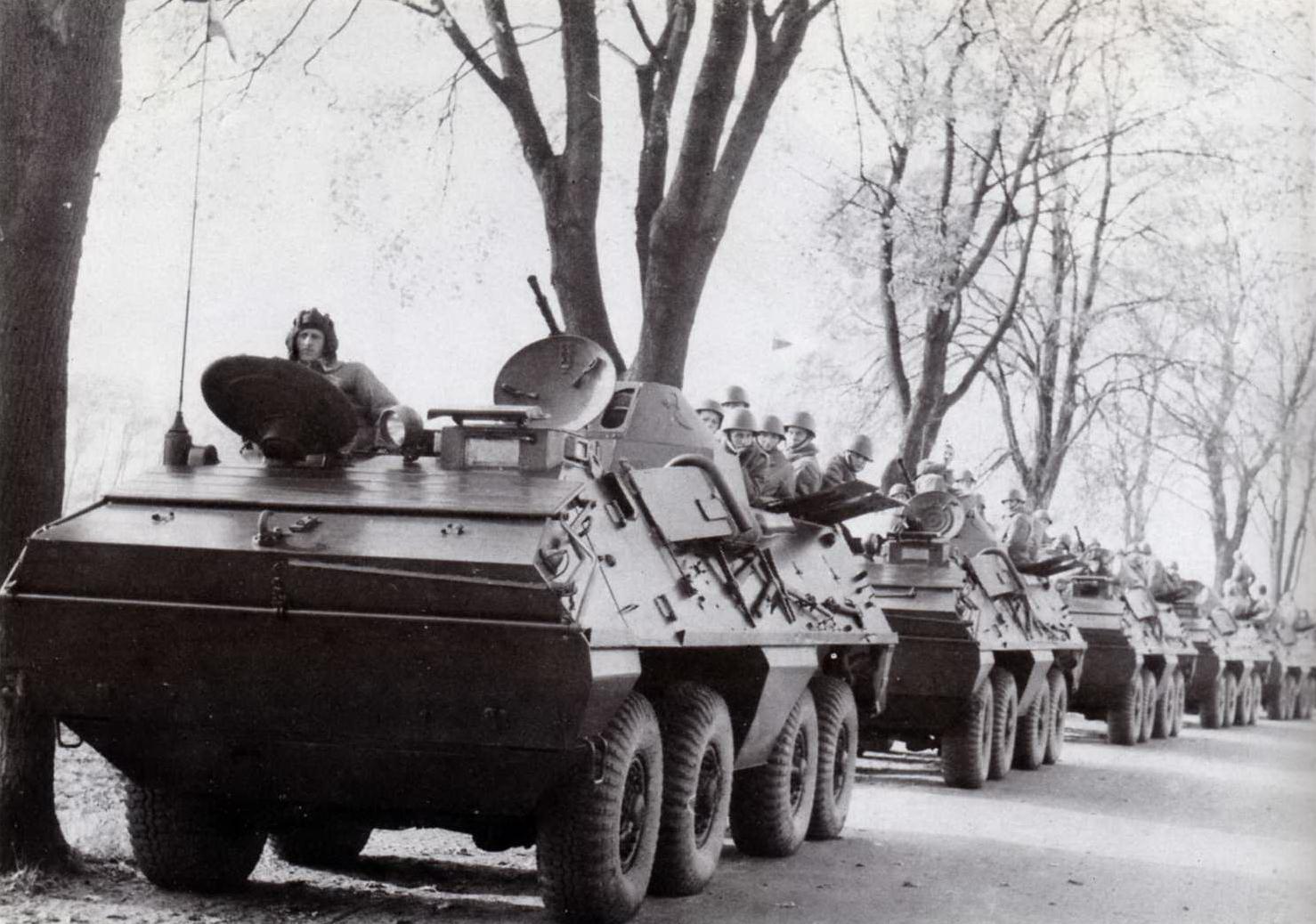 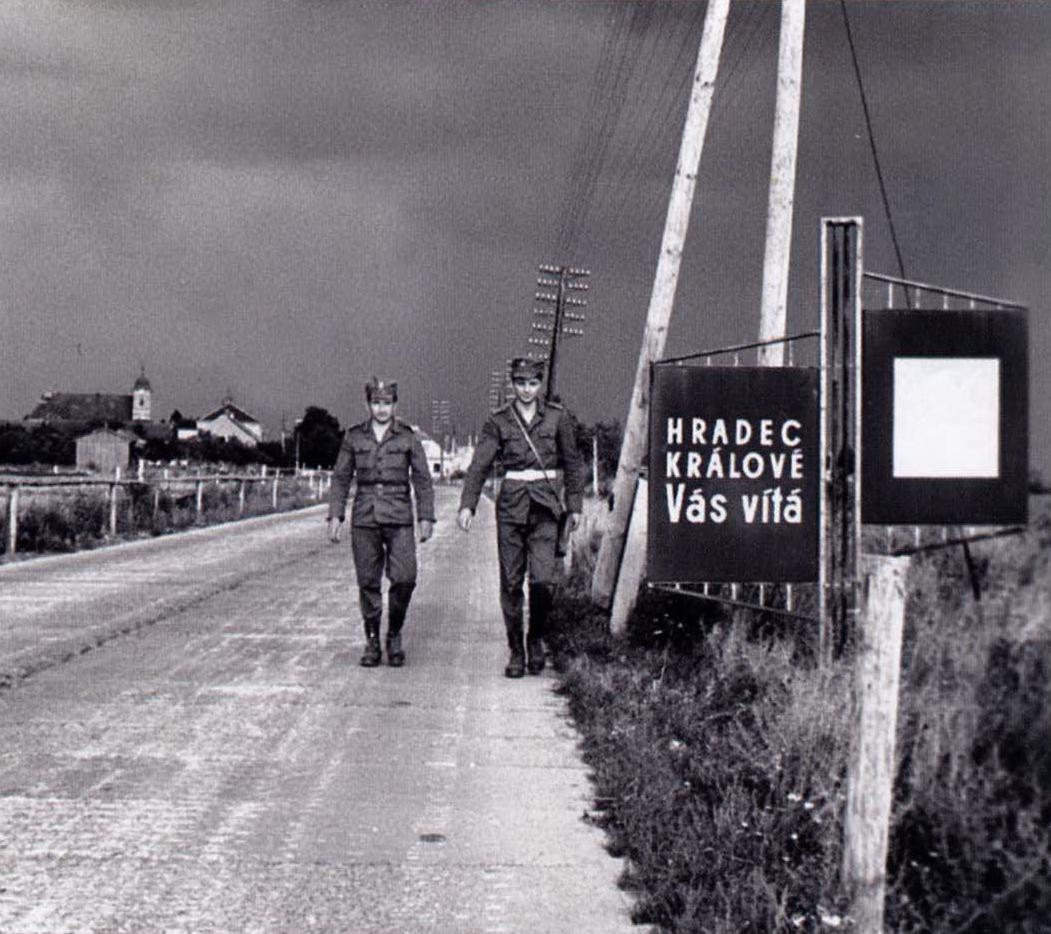   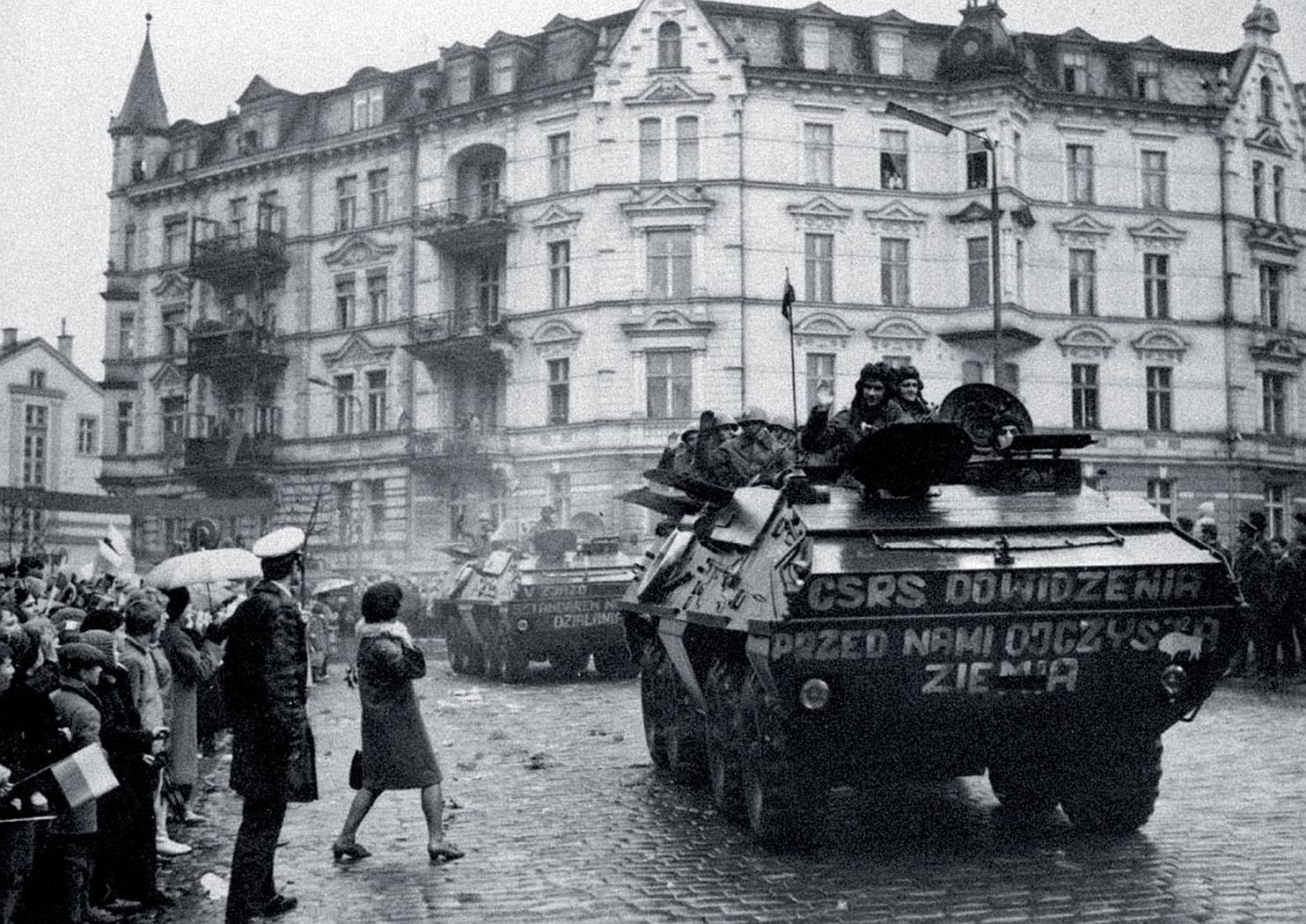  niezlomni.com/20-sierpnia-1968-poczatek-inwazji-czechoslowacje-uwazalismy-narod-polski-swoich-braci-teraz-jestesmy-zmuszeni-patrzec-nich-gwalcicieli-mordercow/ niezlomni.com/20-sierpnia-1968-poczatek-inwazji-czechoslowacje-uwazalismy-narod-polski-swoich-braci-teraz-jestesmy-zmuszeni-patrzec-nich-gwalcicieli-mordercow/The occupation was not too peaceful. Polish soldiers actively suppressed the Czech opposition, by tracking down illegal radio stations or printing houses. They also removed the anti-invasion graffiti on walls. They put pressure on local patriotic authorities which were reluctant to cooperate with true communists who started taking control thanks to the invasion. Polish soldiers sometimes behaved like real occupants. When they went to local pubs and received unfriendly comments from Czechs, they could get really nasty and it often happened that they ordered a Czech man to drink beer from his shoes..... The greatest tragedy happened when on 7 September, 1968, a drunk Polish soldier opened fire into the crowd of civilians, killing 2 and wounding 5 people on the spot. The killer was sentenced to death, later changed to life, and finally left prison after 15 years. |
|
|
|
Post by Bonobo on May 23, 2008 9:51:44 GMT 1
Polish society`s opposition against the invasion was feeble. One must remember, though, that 3 months before the Polish authorities had cracked on restive students and intellectuals demanding greater freedom. polandsite.proboards104.com/index.cgi?board=polishhistory&action=display&thread=70&page=2#1953Nevertheless, during and after the invasion of Czechoslovakia the Polish secret police noticed many anti-government leaflets and graffiti on walls. Also a few intellectuals and writers sent a letter of protest to authorities. Some party members resigned from their membership. The most spectacular act of protest against the invasion was the self-burning of Ryszard Siwiec. en.wikipedia.org/wiki/Ryszard_SiwiecRyszard Siwiec (1909—September 12, 1968) was a Polish accountant, teacher and former Home Army soldier who was the first person to set himself on fire in protest against the Soviet-led invasion of Czechoslovakia. He set himself ablaze in Warsaw during a national harvest festival on September 8, 1968 at the Dziesięciolecia Stadium, and died in hospital four days later. His act was witnessed by nearly 100,000 spectators, including the national leadership and foreign diplomats who had been invited to the festival intended as a vast propaganda spectacle. A father of five from Przemyśl, Siwiec planned his self-immolation in advance, leaving written and tape-recorded statements explaining his revulsion at both the Warsaw Pact invasion and communist Poland's participation in it. His death foreshadowed the famous self-immolation of Jan Palach in Prague four months later. It has not been revealed whether Palach knew about Siwiec's act of protest, as the Polish communist authorities vigorously suppressed any information about it, stating only that Siwiec was "suffering from mental illness". Although his act was captured by a motion picture camera, newsreels of the festival omitted any mention of the incident. Although a number of Czechoslovaks attended the festival, Siwiec's death became widely known in Czechoslovakia only after the news of it was broadcast on Radio Free Europe two months after Palach's death.
See the photo. In the stadium folk dancing, the tragedy of self burning man in the center. 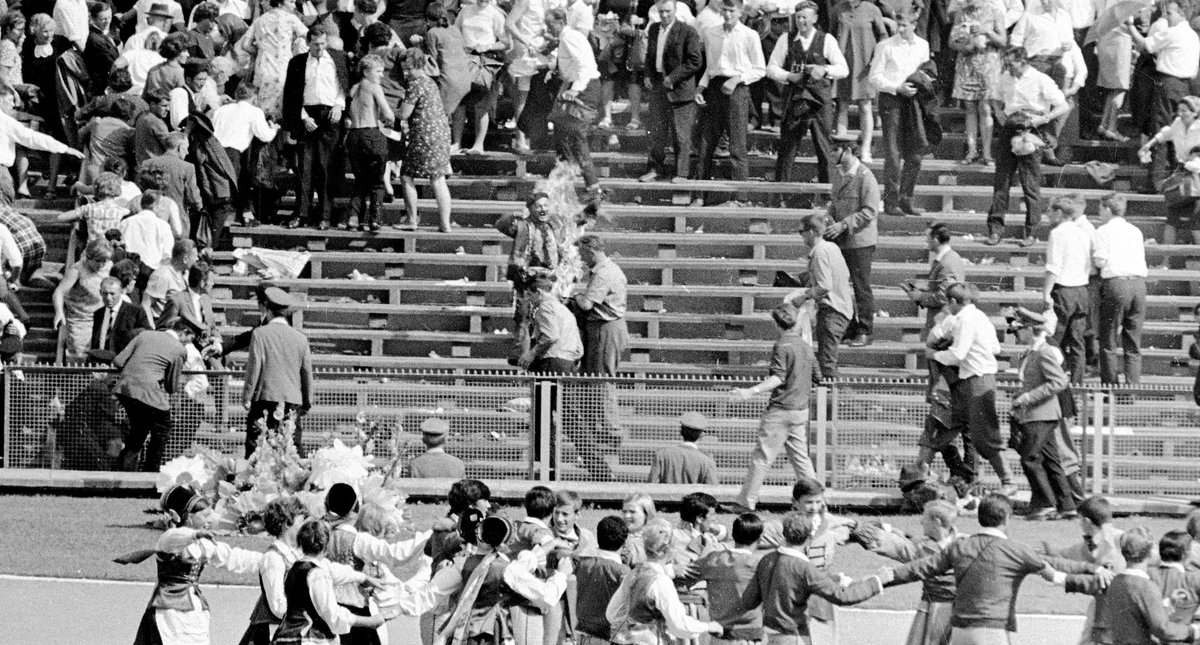   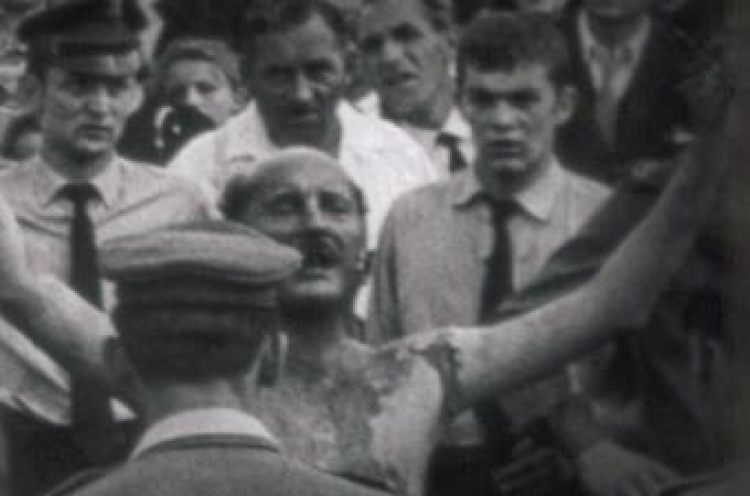   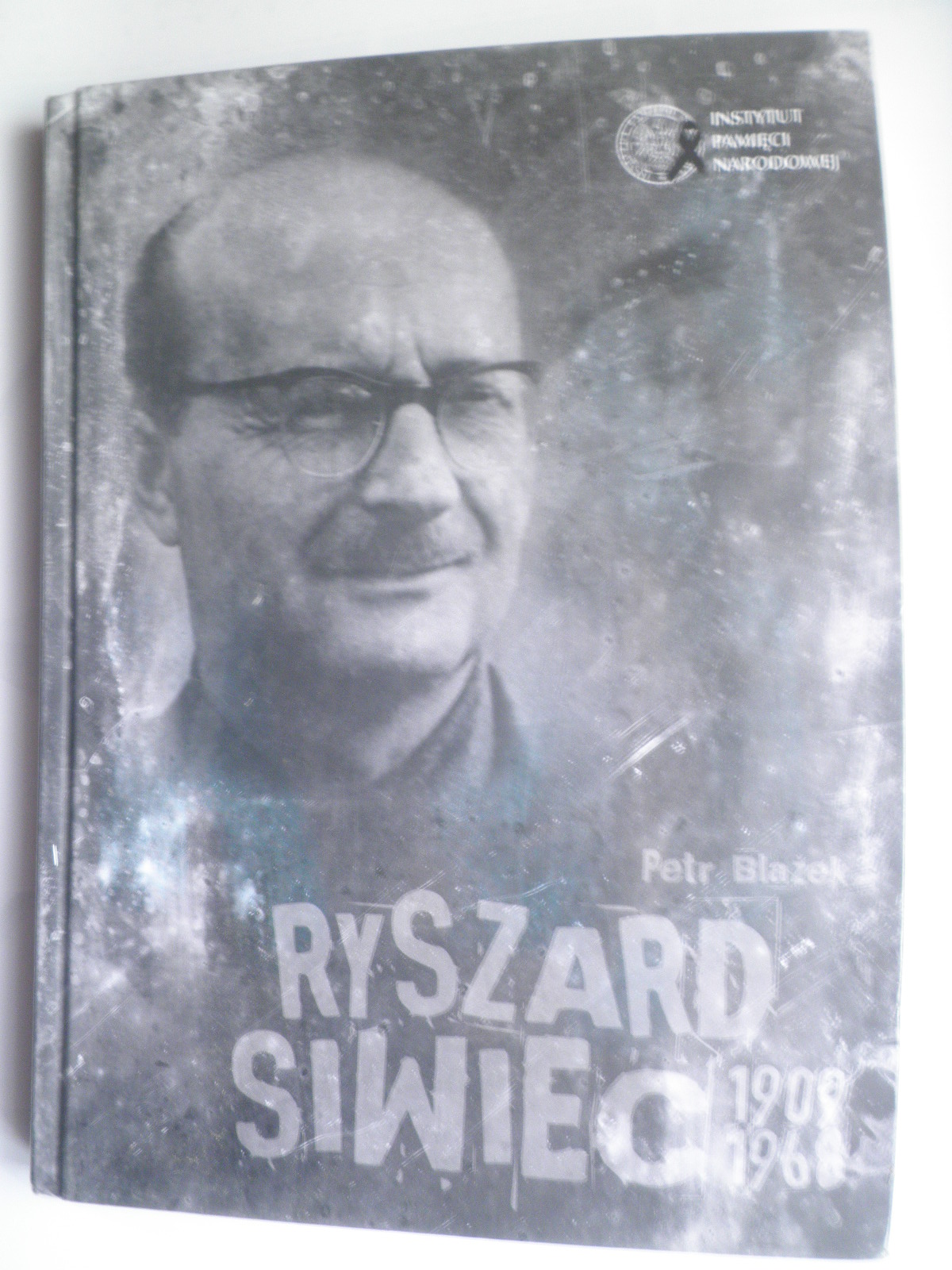 Film showing Siwiec tragedy: |
|
gigi
Kindergarten kid
  
Posts: 1,470
|
Post by gigi on May 23, 2008 16:09:54 GMT 1
The most spectacular act of protest against the invasion was the self-burning of Ryszard Siwiec... He set himself ablaze in Warsaw during a national harvest festival on September 8, 1968 at the Dziesięciolecia Stadium, and died in hospital four days later. His act was witnessed by nearly 100,000 spectators, including the national leadership and foreign diplomats who had been invited to the festival intended as a vast propaganda spectacle. This photo is incredibly disturbing. To see the man on fire in the middle of a stadium while some people simply look on and others (unbelievably) seem to continue on with whatever they are doing - it is shocking! Was self-immolation either heroic or common enough in Poland that not one single person would take any action to stop it? |
|
|
|
Post by Bonobo on May 23, 2008 17:23:53 GMT 1
This photo is incredibly disturbing. To see the man on fire in the middle of a stadium while some people simply look on and others (unbelievably) seem to continue on with whatever they are doing - it is shocking! Was self-immolation either heroic or common enough in Poland that not one single person would take any action to stop it? It is disturbing but not because nobody is trying to rescue him. It is quite understandable, such acts are extremely rare in Poland, only two self-immolation tragedies happened in post war history of Poland, this and another one took which took place in Krakow in 1980. It is obvious those people around were totally stupified and didn`t know what to do because it was then very beginning of the incident. But if you look closely, you can see guys rushing to help, among them some policemen. It is visible they are helpless, though, because putting out a fire with bare hands is difficult. |
|
|
|
Post by valpomike on May 24, 2008 0:11:37 GMT 1
The Polish did what they were thinking, was what they had to, and we hope it was not in error, at the time.
|
|
|
|
Post by Bonobo on May 24, 2008 18:22:55 GMT 1
The Polish did what they were thinking, was what they had to, and we hope it was not in error, at the time. They had to because they were ordered to. But, the example of Romania shows that satellite states could turn down Soviet pressure. Poland didn`t do it and Poles were occupants, invaders and in one case murderers of innocent people. Sorry, Mike, I know you are a great patriot but in this case there is no excuse. Poles behaved like swine and the only thing we can say to the Czech is we are terribly sorry. Add to it Ryszard Siwiec`s sacrifice. Actually, the Polish democratic governments apologised officially to our Slavic brothers for what we did to them. Even General Jaruzelski, then a Defence Minister, sent an apology to the Czech. www.radio.cz/en/article/69856A military band played outside the headquarters of Czech Radio on Sunday, as people across the Czech Republic gathered to commemorate the 37th anniversary of the invasion. The commemoration is an annual and by now unremarkable event. But this year, General Jaruzelski, Poland's last Communist president, appeared live on Czech Television to apologise for his country's role in the 1968 invasion. His words were simultaneously translated by an interpreter.
"I'm well aware of just how wrong a decision it was. I'm sorry about it, it still pains me. I know the Czech people expect this of me, so I say to you - I'm sorry, and I want to repeat it once again. I'm capable of saying it once again, and stressing it, underlining it."
General Jaruzelski, who was defence minister in 1968, said by putting his signature to the invasion he was implementing a political decision. He said he soon came to realise the invasion was a "stupid, political act."
It's not the first time General Jaruzelski has apologised for Poland's role in the invasion. The Polish leader said he was sorry in 1990, when the newly elected Czechoslovak president Vaclav Havel visited Warsaw.
news.bbc.co.uk/1/hi/world/europe/4171966.stmBetter late than never. 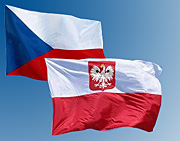 |
|
|
|
Post by valpomike on May 24, 2008 22:57:18 GMT 1
I am not a student of Polish history, so I guess, you are correct, sorry for my answer, if it upset anyone. We all make errors, but to know when you are corrected is another thing.
|
|
|
|
Post by Bonobo on May 25, 2008 20:54:07 GMT 1
I am not a student of Polish history, so I guess, you are correct, sorry for my answer, if it upset anyone. We all make errors, but to know when you are corrected is another thing. Oh, Mike, there is no need to be sorry. You have your opinion, and I have mine and everything`s fine.   It is good that you are such a persistent advocate of Poles. They really need it because on several occasions they behaved like rascals and require a good defence lawyer. In this and other cases when Poles were rogues, I prefer being a prosecutor. Despite my sense of humour, I can be a strict teacher and father. So, keep on defending Poles because they will need it here and somewhere else too!!     |
|
|
|
Post by tufta on May 26, 2008 7:03:13 GMT 1
My three cents if you don't mind.
Poles as a whole nation never supported intervention in Czechoslovakia and never supported communist government. Any communist government 1949-1989 would fall within weeks, would the Soviet Union backed off it's support for the communists. And ESPECIALLY the one responsible for obeying the Russians in 1968 and sending Polish troops south. General Jaruzelski is a traitor of Poland, and yes he may apologize for what he has done to 'Czech spring'. But not in my name. I never supported him, I actively opposed him and his government.
So, logically, Poles as a nation can't be condemned for interevention in Czechoslovakia. Yet, I agree we can feel sorry towards Czechs and Slovaks, and most of the Poles do feel sorry. Even when politically and historically aware Czechs and Slovaks say we need not be. Paradoxes, paradoxes.
|
|
|
|
Post by Bonobo on May 26, 2008 12:24:08 GMT 1
My three cents if you don't mind. Not at all, you are welcome. The more advocates, the merrier. ;D Hmm, but many Poles did support communism because they gained substantial profits from the system or they were afraid of Germany. Also read an article suggesting that, despite individual protests and opposition, after some time most Poles accepted the intervention, even those anti-communist oriented. www.mowiawieki.pl/artykul.html?id_artykul=993Jak siê wydaje, w pierwszych dniach po 21 sierpnia przewa¿a³y g³osy oburzenia, ale z czasem antyczechos³owacka propaganda zaczê³a odnosiæ sukcesy. W g³osach popieraj¹cych interwencjê mo¿na wskazaæ dwie g³ówne przyczyny takiej postawy, nierzadkiej nawet u osób o pogl¹dach antykomunistycznych: obawa przed zagro¿eniem niemieckim i powtórzeniem siê sytuacji z wrzeœnia 1939 roku, gdy Polska zosta³a zaatakowana tak¿e z po³udnia. Przytoczmy wypowiedŸ jednego ze szczeciñskich adwokatów: Oczywiœcie, mo¿na zarzuciæ Sowietom, i¿ naruszy³y suwerennoœæ Czechos³owacji, gdy¿ interwencja ³¹czy siê z wewnêtrznymi sprawami CSRS i nie uda³o siê wykazaæ, by nast¹pi³a na proœbê w³adz czechos³owackich. Niemniej jednak jako Polak i mieszkaniec polskich Ziem Zachodnich uwa¿am, ¿e interwencja by³a konieczna, bo w przeciwnym razie nast¹pi³aby nieskrêpowana penetracja terenu CSRS przez NRF, a to zagra¿a³oby naszemu stanowi posiadania. Mo¿na nawet byæ wrogiem komunizmu i metod sowieckich, ale nale¿y siê z tymi krokami pogodziæ z punktu widzenia polskiej racji stanu. Can we put the blame on communists for everything? What t about the behaviour of individual Polish soldiers in Czechoslovakia? Is it also a communist fault when Polished soldiers harassed and killed Czechs? It wasn`t Jaruzelski`s sole decision. It was Gomu³ka and other leaders of the Warsaw Pact who decided to crush the spring. Yet, let`s remember that Romania under Ceaucescu abstained from participation. Yes, of course, they can be condemned and I am condemining them, I believe it is right. Do you think that it really mattered to those Czechs what political stance those Polish occupants were? Did the Czech differentiate between communists and non-communists? No, they didn`t. It was the Polish Army and it did dirty job in Czechoslovakia, tracking down patriotic radio stations, forcing the Czech to collaborate with occupants and in one case murdering people in the street. Do you think it mattered whether the Polish killer was a communist or not? No, he was a normal Pole just like me or you, he was the son of this nation. In a typical occupant`s manner, he imagined himself a king who could do anything. You feel sorry and think it is enough. I have a different opinion. I feel sorry and say sorry at the same time. I have to disagreee again. How many people in any country are historically aware and realise all the nuances and intrigues behind the stage curtain? 5% 10%? Let it be 20% although it is still too much. So, all the rest considers Polish invasion a disgrace and it doesn`t matter to them whether Poland was a communist country or not. Soldiers were Polish and that`s what mattered. What is worse, it wasn`t the first time that Poland made an invasion on Czechoslovakia. The former one was in 1938. I am going to write about it. Soon. So hold on tight. hahahaha |
|
|
|
Post by tufta on May 26, 2008 18:18:49 GMT 1
The intervention was done against the will of Poles and against their interests since it prolonged Soviet occupation of Poland . And that is the fundamental truth, no matter what propaganda said and what tricks (like the mythical German revisionism) they used. (sidenote - it wasn't purely Polish communist intervention as it might seem from the present relation.) Yes, of course, they can be condemned and I am condemining them, I believe it is right. I am sure you don't condemn those who opposed the intervention. That is my main point. We can't condemn the whole nation but we can an should be sorry even if it wasn't the whole nations fault. Many people opposed it in spite of opposition being already heavily weakened due to March 1968. (BTW the so called 'March '68 - is a much better example of Poles as oppressors if you so much need one). Bonobo, I like your lack of sentimentalism and open front criticism towards our history and present time. Combined with your obvious patriotism behind it. That is why I said I am stunned when I first read your posts in this board. But just my personal opinion is that sometimes, like here, you exaggerate. Hope you don't mind ( I know you don't  |
|
|
|
Post by Bonobo on May 26, 2008 19:40:09 GMT 1
The intervention was done against the will of Poles. I can agree with it... I have to disagree. Poles had other interests at the time. The excerpt from the historic magazine Mówią Wieki which I provided proves that most Poles accepted the intervention as a lesser evil, believing it prevented Germany from controling Czechoslovakia. Germany controlled Czechoslovakia posed a great threat to Poland, that`s what people prefered to see. Communist propaganda used tricks but why did Poles receive them so warmly? Of course not. We are discussing the Polish participation in it. But I have the right to formulate my opinion about it. Of course not. There were a few righteous ones and I mentioned them in my second post. What I surely condemn is the behaviour of Polish soldiers who, treated by Czechs as occupants, acted like occupants. And that is what I would like to say sorry for to brothers Czechs. Do you mean what I know? I warned you in the Introduction thread. ;D ;D ;D I said: I hope you will enjoy our company, and won`t mind when we display some strange views concerning Polish stuff. I am not sentimental. I consider it cheap. Of course I don`t mind and of course I do exaggerate. I love playing devil`s advocate and be against the mainstream. Exaggerating is my specialty - without it there is no real discussion, is there?? ;D ;D ;D I don`t mind. I am glad when someone dares to disagree with me, I am so happy then.... But, please don`t call me a Nazi buff, like one member did once. hahahahaahahahahahaha There will be more exaggeration. ;D ;D ;D Wait till you see my opinions stated on Warsaw Uprising....So far I have posted only photos...... polandsite.proboards104.com/index.cgi?board=polishhistory&action=display&thread=179 |
|
gigi
Kindergarten kid
  
Posts: 1,470
|
Post by gigi on Aug 22, 2008 16:05:29 GMT 1
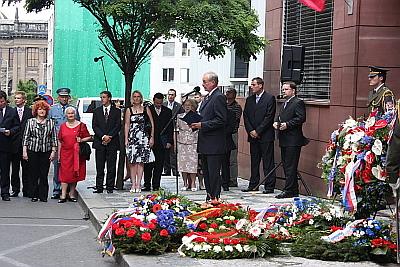 40th anniversary of Prague Spring commemorated Published: Thursday 21 August 2008 19:25 UTC Last updated: Friday 22 August 2008 11:15 UTC Commemorations in the Czech Republic and Slovakia have marked the quashing of the Prague Spring 40 years ago today. The Prague Spring was the term coined to describe the democratisation movement in former Czechoslovakia in 1968. The Soviet Union deployed tanks to put an end to its communist ally's reforms on 21 August 1968.
Prime Minister of the Czech Republic Mirek Topolanek and his Slovenian counterpart Robert Fico laid a wreath to commemorate the 108 people who died as a result of the Russian invasion.
Russia did not mark the anniversary, but chairman of the Council of Federation Sergei Mironov did say the brutal operation was a mistake and a sign of weakness. |
|
|
|
Post by Bonobo on Feb 17, 2009 9:00:29 GMT 1
The most spectacular act of protest against the invasion was the self-burning of Ryszard Siwiec. en.wikipedia.org/wiki/Ryszard_SiwiecSee the photo. In the stadium folk dancing, the tragedy of self burning man in the center.  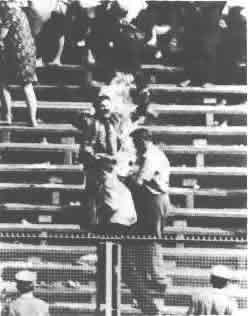
Czechs honors Pole who burned himself to death
The Associated Press
Friday, February 13, 2009
PRAGUE: The Czech capital is naming a street after a Polish man who set himself on fire to protest the 1968 Soviet-led invasion of what was then Czechoslovakia.
Ryszard Siwiec was a father of five when he set himself ablaze on Sept 8, 1968 in front of a crowd of 100,000 in stadium in Warsaw. He died four days later.
The invasion crushed the liberal reforms of Alexander Dubcek and ended an era known as the Prague Spring. It involved armies from five Warsaw Pact countries, including Poland.
Several people, including two Czech students, followed Siwiec's example.
Siwiec's son Wit attended a ceremony in Prague on Friday that was also marked the 100th anniversary of his father's birth.
|
|
|
|
Post by Bonobo on Aug 15, 2018 16:36:00 GMT 1
The occupation was not too peaceful. Polish soldiers actively suppressed the Czech opposition, by tracking down illegal radio stations or printing houses. They also removed the anti-invasion graffiti on walls. They put pressure on local patriotic authorities which were reluctant to cooperate with true communists who started taking control thanks to the invasion. Polish soldiers sometimes behaved like real occupants. When they went to local pubs and received unfriendly comments from Czechs, they could get really nasty and it often happened that they ordered a Czech man to drink beer from his shoes..... The greatest tragedy happened when on 7 September, 1968, a drunk Polish soldier opened fire into the crowd of civilians, killing 2 and wounding 5 people on the spot. The killer was sentenced to death, later changed to life, and finally left prison after 15 years. Wow, we are going to celebrate the 50th anniversary of the intervention. The shooting and killing of Czech civilians done by Polish soldiers took place in Jicin and has been called the Jicin massacre by locals. Eternal disgrace to the murderers, glory to the victims. In Polish dzieje.pl/artykuly-historyczne/tragedia-w-jicinie-7-wrzesnia-1968-rIn Czech zpravy.aktualne.cz/zahranici/jicinsky-masakr-je-hanbou-okupantu-polak-v-roce-1968-zavrazd/r~191b3b9e68a411e89b0fac1f6b220ee8/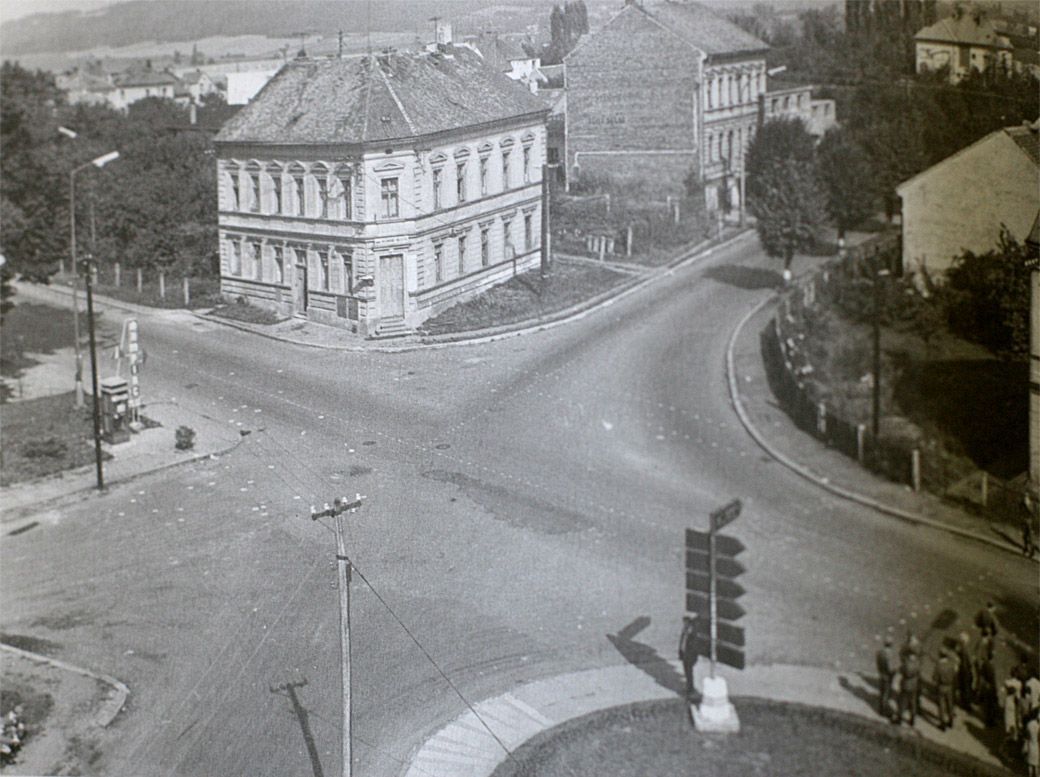 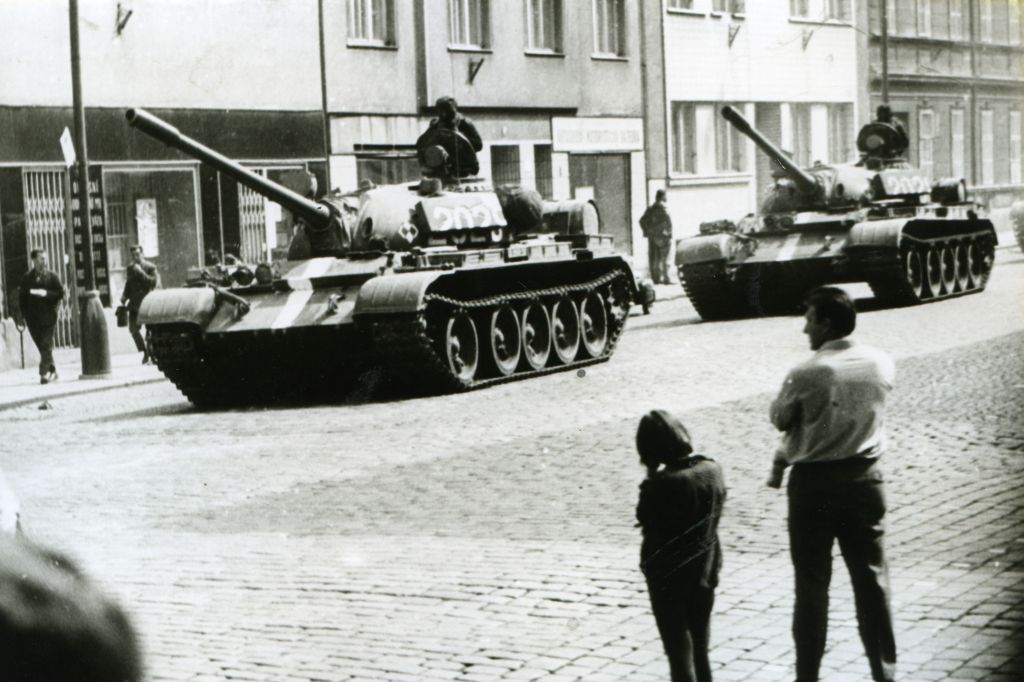 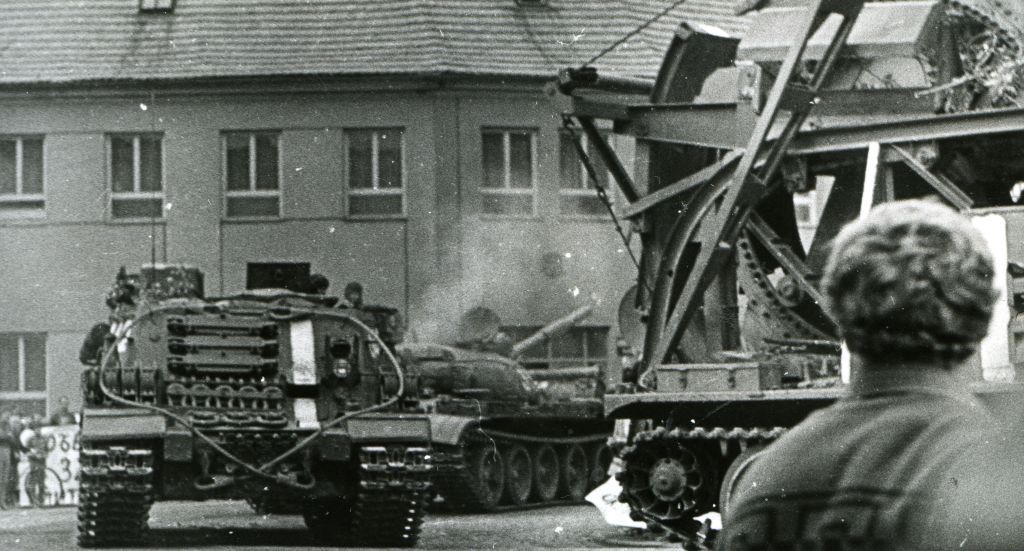 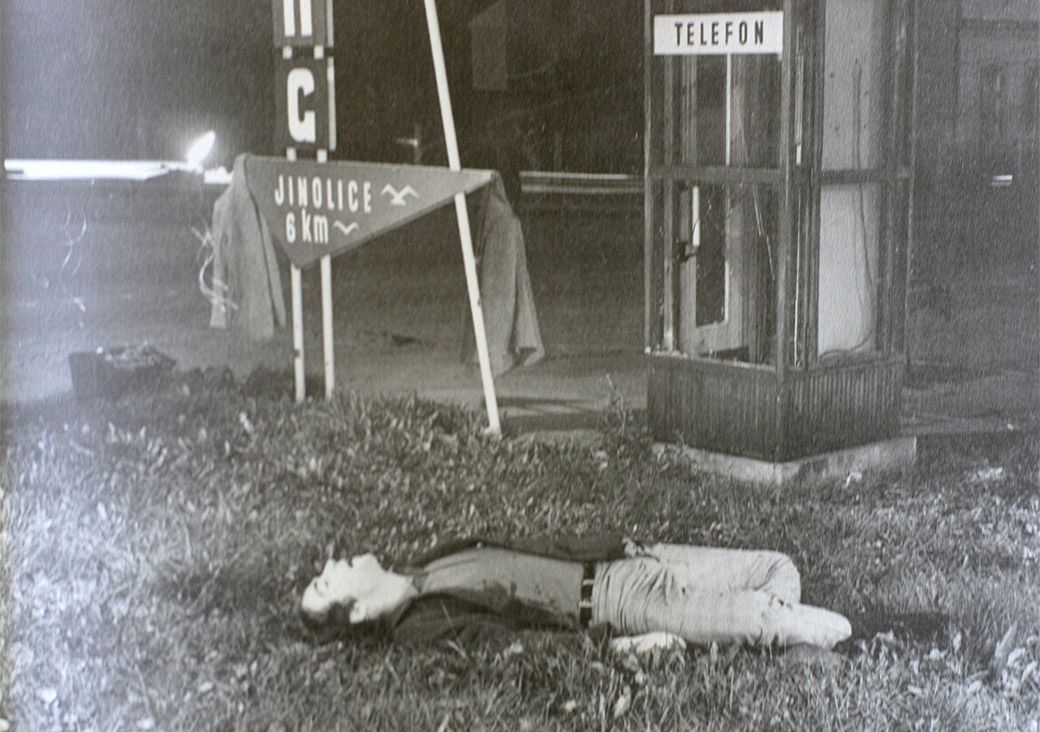 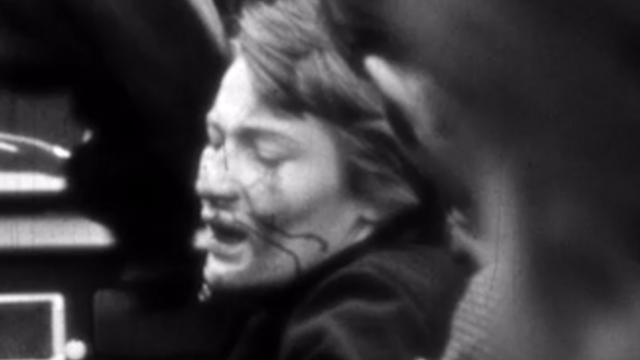 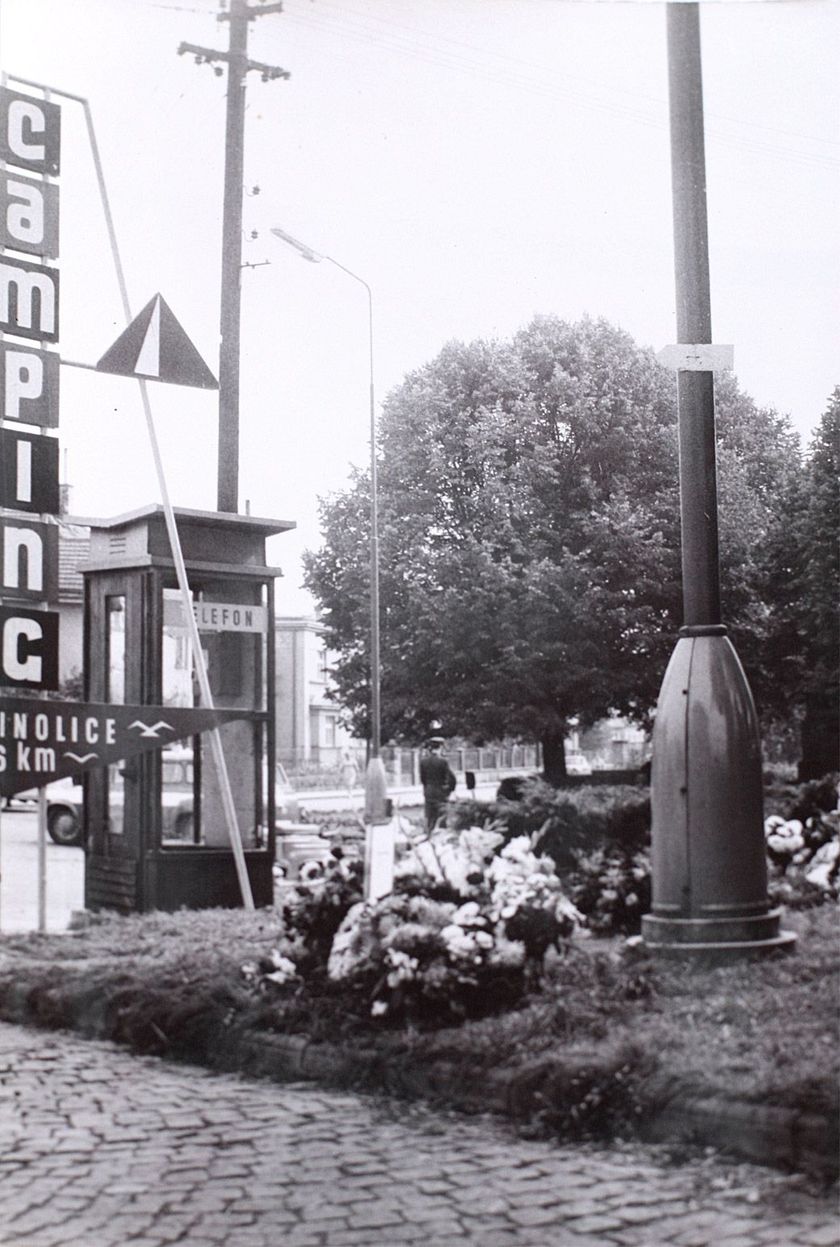 Victim - Jaroslav Vesely, a singer 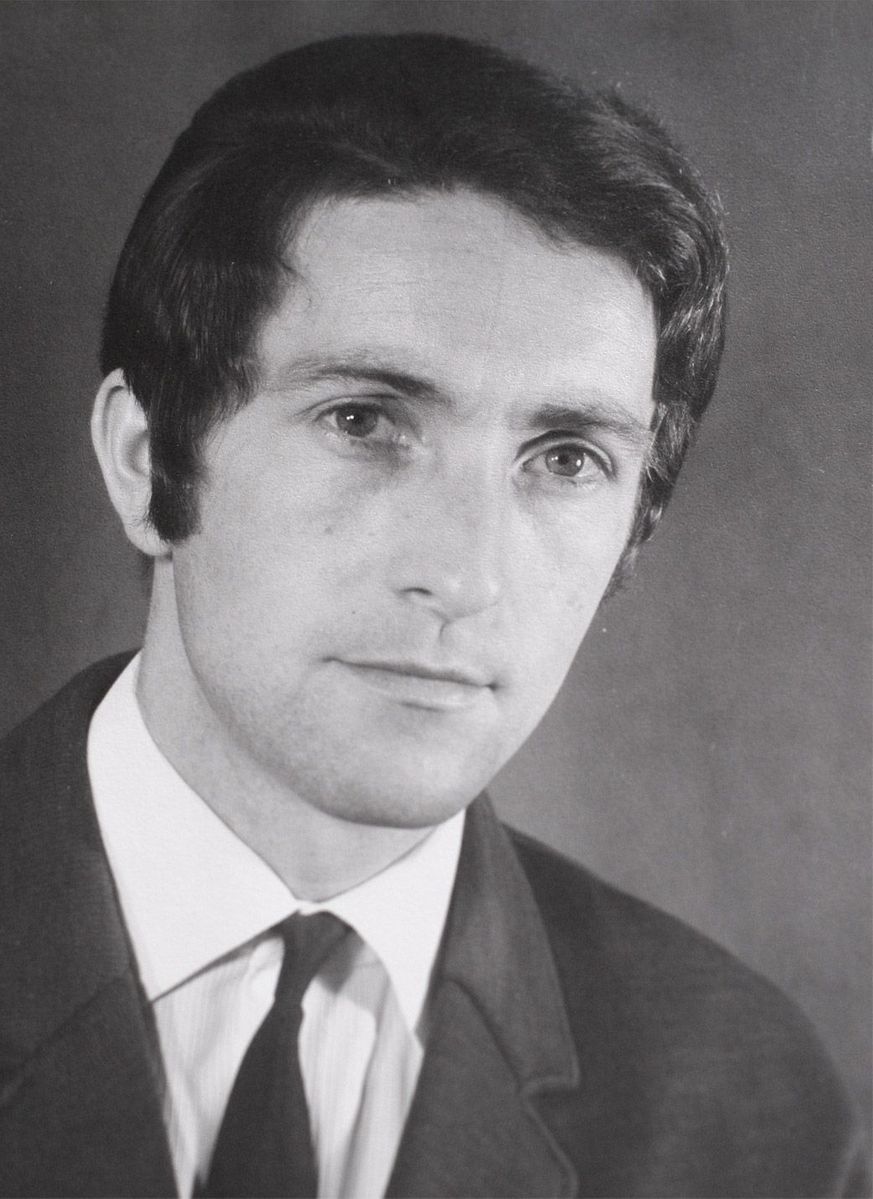 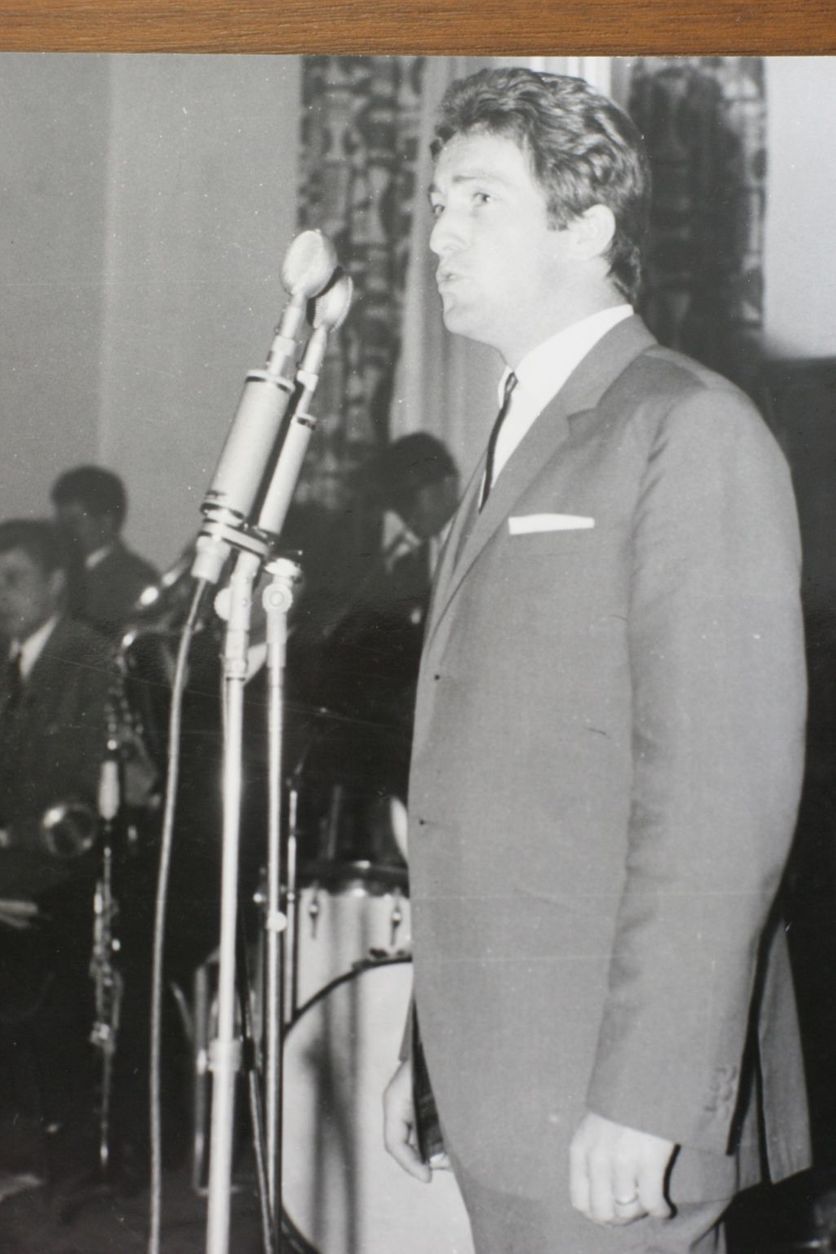 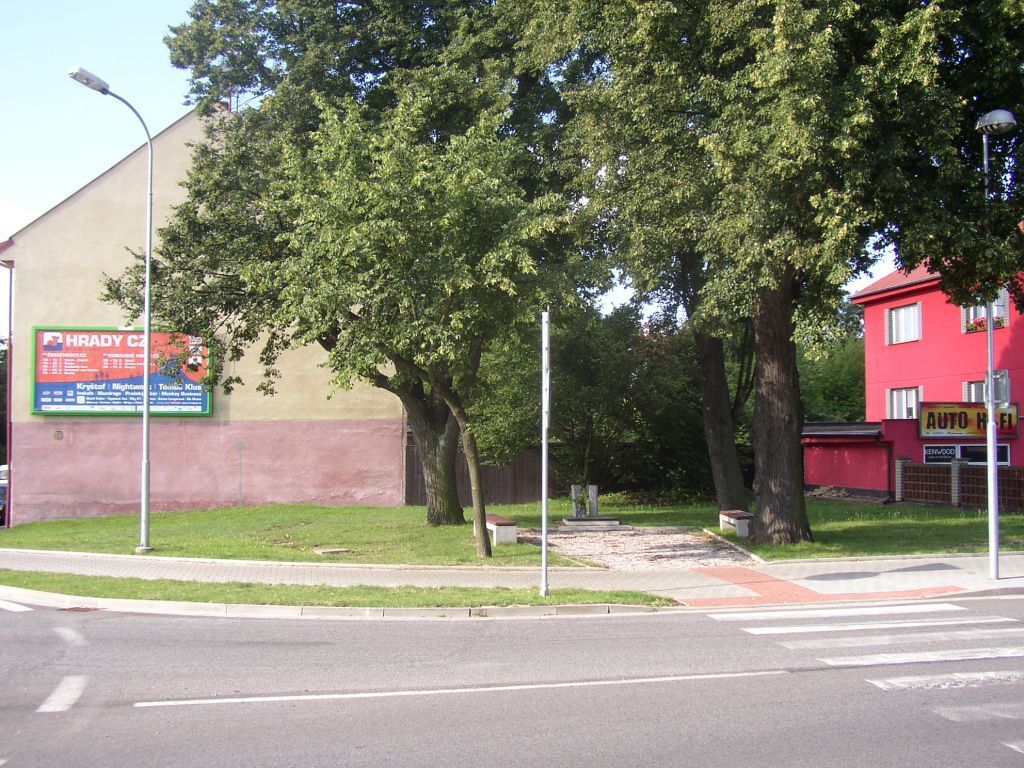 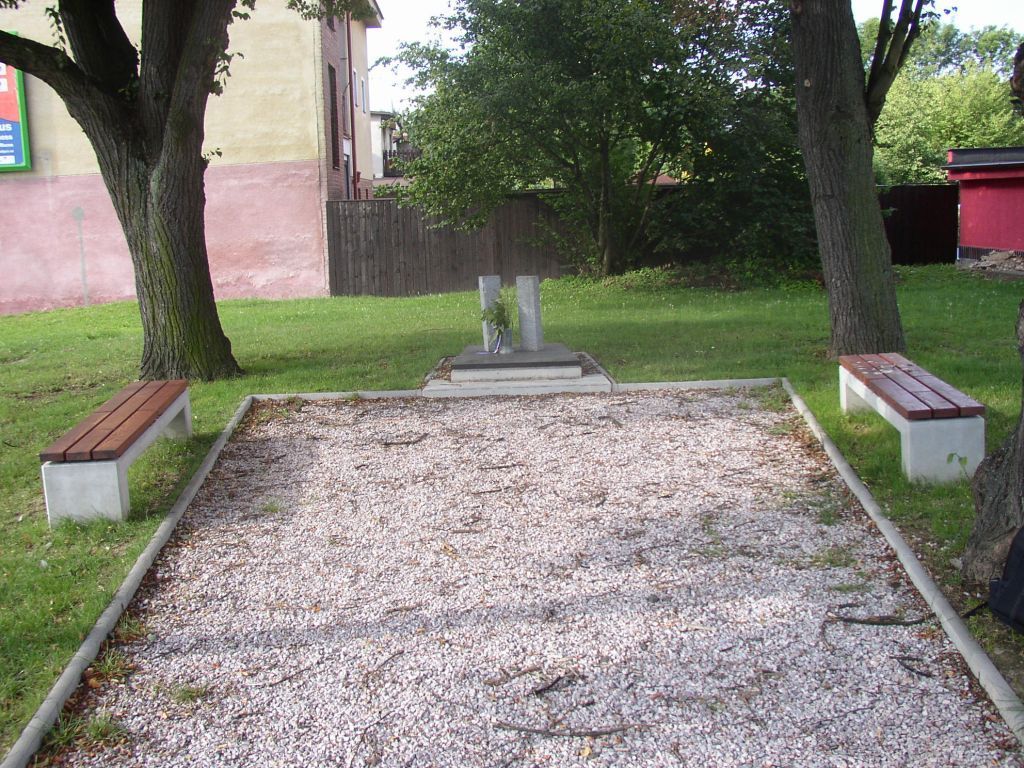 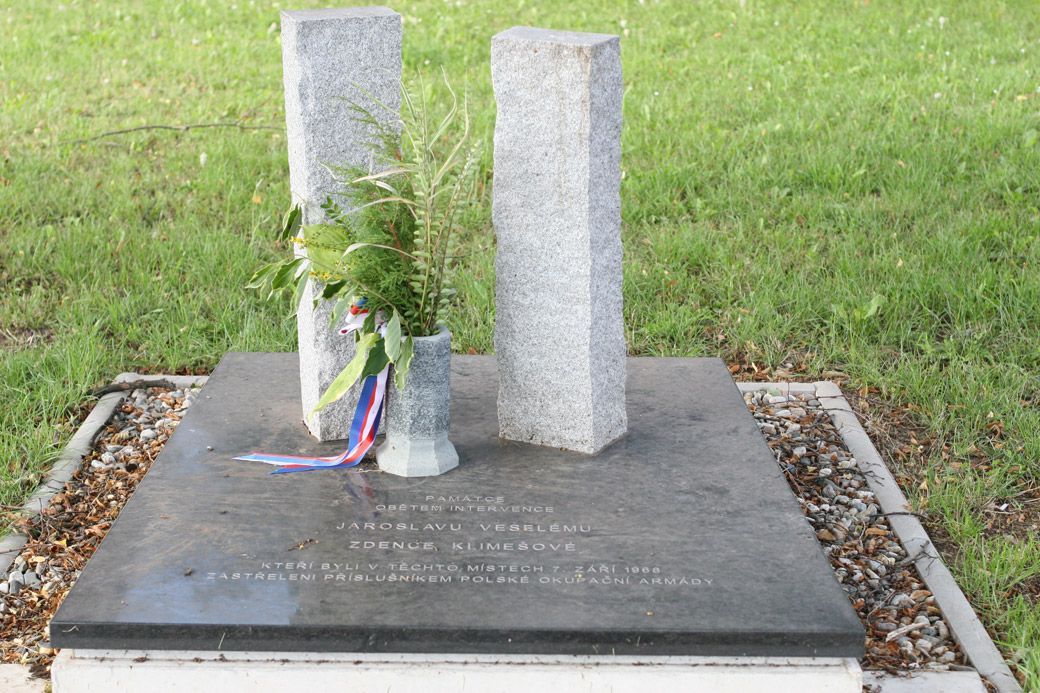 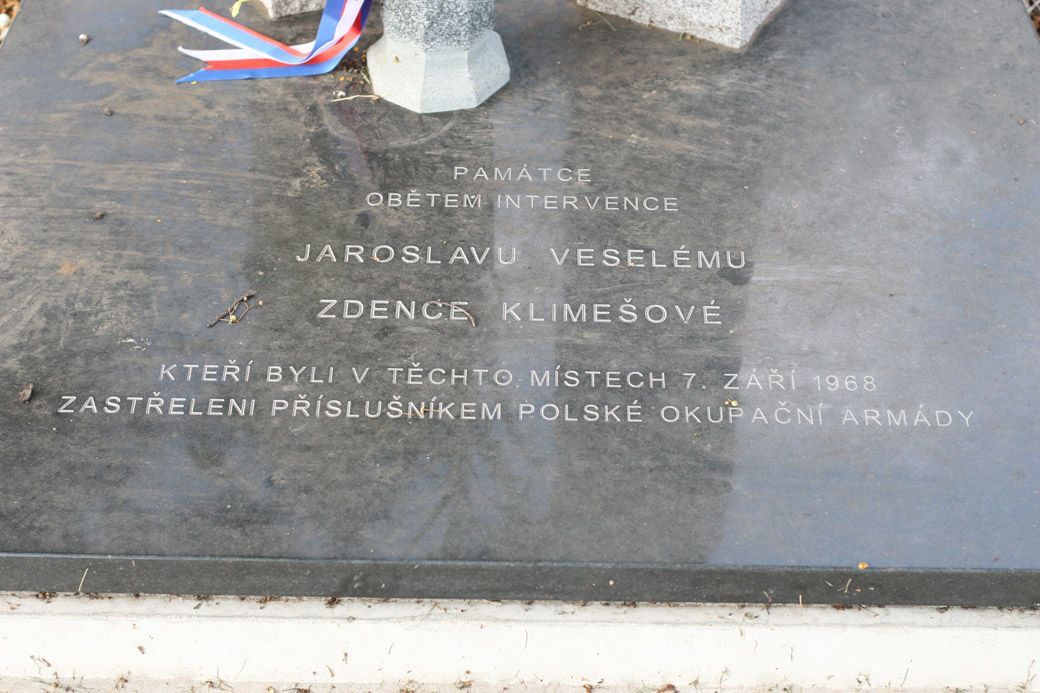 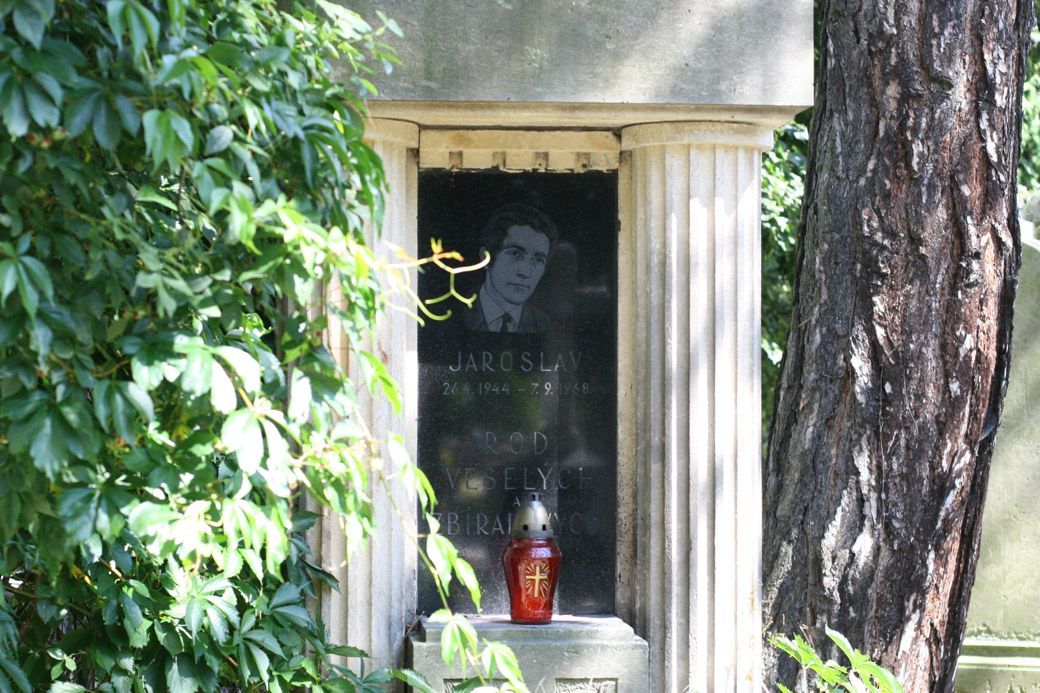 zpravy.aktualne.cz/zahranici/jicinska-tragedie-z-roku-1968-dva-mrtvi-po-strelbe/r~i:gallery:31413/r~i:photo:567688/ zpravy.aktualne.cz/zahranici/jicinska-tragedie-z-roku-1968-dva-mrtvi-po-strelbe/r~i:gallery:31413/r~i:photo:567688/ |
|
|
|
Post by pjotr on Oct 4, 2020 4:10:15 GMT 1
Marta Kubišová (born 1 November 1942 in České Budějovice) is a Czech singer. By the time of the Prague Spring of 1968, with her song "Modlitba pro Martu" ("A prayer for Marta"), she was one of the most popular female singers in Czechoslovakia.
|
|
|
|
Post by pjotr on Oct 4, 2020 4:16:19 GMT 1
Prayer for Marta (Modlitba pro Martu) The Czexh singer Marta Kubišová who sang the Czech song Modlitba pro Martu during the Prague SpringThe Prayer for Marta is a Czech song from 1968 sung by Marta Kubišová, which after the military occupation on August 21 became a symbol of the Czech nation's resistance to the invasion of Warsaw Pact troops into communist Czechoslovakia. At the time of normalization, its broadcasting on radio and television was completely banned. The Czexh singer Marta Kubišová who sang the Czech song Modlitba pro Martu during the Prague SpringThe Prayer for Marta is a Czech song from 1968 sung by Marta Kubišová, which after the military occupation on August 21 became a symbol of the Czech nation's resistance to the invasion of Warsaw Pact troops into communist Czechoslovakia. At the time of normalization, its broadcasting on radio and television was completely banned.
The song with the original name Prayer was created in 1968 for the popular television series Song for Rudolf III. The music was composed by Jindřich Brabec, the text based on motifs by Jan Amos Komenský was written by Petr Rada. Two days after the occupation, Marta Kubišová sang it in the Czechoslovak recording studio. television, on tape, was subsequently imported to Czechoslovak Radio and for the first time reached the audience. In the autumn of 1968, the Prayer for Marta was broadcast in the series A Song for Rudolf III. and later, for example, in the Gramohit 68 program.
The song became fatal for Petr Radu in a way - after years of bans and pressure, he emigrated to Australia and did not return permanently until 1990. The prayer for Marta was performed during demonstrations during the Velvet Revolution on Wenceslas Square by Marta Kubišová. GenesisThe authors of the winning song of the Bratislava Lyre 1968 festival, Jindřich Brabec and Petr Rada (she won the song Cesta performed by Marta Kubišová), were to compose a song for the next, autumn part of the television series Píseň pro Rudolfa III.
The prayer was improvised for the first time on August 23, 1968, and Marta Kubišová was accompanied on the piano by Angelo Michajlov and on drums by Karel Černoch.
It was released in 1968 on a single and later in 1969, in another version, on the album Songy a ballady. In a later censored edition from 1970, it was no longer allowed.
The first recording from August 1968 was released for the first time on the LP records of Písničky roku 1968, released in the 1970s in Switzerland.
The song became one of the symbols of the Prague Spring of 1968 and later of the Velvet Revolution of 1989 after Marta Kubišová sang it on November 21 from the balcony of Melantrich for the fully packed Wenceslas Square in Prague.
Two music videos were made for the song, one of them directly for the TV series.
|
|
|
|
Post by jeanne on Oct 4, 2020 21:30:33 GMT 1
Pieter,
Do you know where I could read the lyrics to this song in English?
You (and Bonobo) are doing a very good job filling in the gaps I have in my knowledge of European history...even the history I lived through. It is sad Americans are so ignorant concerning these things. Americans are fed only what the media decides they will be fed...an injustice to all of us, Europeans and Americans alike.
|
|
|
|
Post by pjotr on Oct 6, 2020 13:09:44 GMT 1
|
|
|
|
Post by jeanne on Oct 10, 2020 0:30:12 GMT 1
Thank you, Pieter.
|
|















































